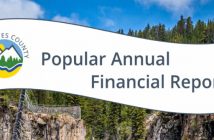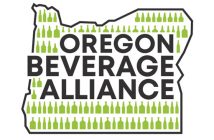Inflation, the cost of health insurance, and the inability to fill open job positions continue to be big problems for small businesses, according to two reports issued this week by the National Federation of Independent Business (NFIB), the nation’s leading small business advocacy association.
“Owning and operating a small business is always a challenge — and that hasn’t changed since we’ve been surveying our members on these problems and priorities for the last 40 years,” said Anthony Smith, Oregon state director for the National Federation of Independent Business (NFIB), which released its quadrennial Small Business Problems & Priorities report, today, and its monthly Small Business Economic Trends (SBET) report, yesterday (August 13).
“The results from this year’s survey confirm what we’ve been hearing anecdotally here in Oregon for some time now. Inflation is impacting every aspect of running a financially sustainable enterprise. Health care, interest rates, energy costs — everything is priced higher than it was four years ago. Couple that with the possibility of a massive federal tax increase next year and general uncertainty about the economy, and now you have a pretty good idea what keeps the average small business owner up at night. For anyone looking to make a positive impact on the public policy issues most important to small business, this report is your roadmap.”
Highlights from NFIB’s latest Small Business Problems & Priorities report, published every four years since 1982 include:
- Unchanged since 1986, the “Cost of Health Insurance” remains the number one chronic issue for small business owners.
- The “Cost of Supplies/Inventories” moved up in importance from ranking 12th in 2020 to its current second place ranking — a direct result of historic inflation over the last two years.
- “Interest Rates,” topped the list by rising 43 positions from a rank of 56th in 2020 to 13th in 2024.
“For the last four years, small business owners have struggled with historic inflation, tax pressures at all levels of government, and uncertainty of what’s going to happen next,” said Holly Wade, Executive Director of the NFIB Research Center. “This survey helps the public understand the issues affecting the small business sector. Small businesses employ more than half of the private sector workforce, and this publication makes clear where lawmakers should focus their attention to strengthen Main Street and every community in which they operate.”
Highlights from NFIB’s latest Small Business Economic Trends report, released the second Tuesday of every month, include:
- Inflation remains the top issue among small business owners, with 25% reporting it as their single most important problem in operating their business, up four points from June.
- Thirty-eight percent (seasonally adjusted) of all owners reported job openings they could not fill in the current period, up one point from June.
- Seasonally adjusted, a net 33% reported raising compensation in July, down five points from June and the lowest reading since April 2021.
“Cost pressures, especially labor costs, continue to plague small business operations, impacting their bottom line,” said NFIB Chief Economist Bill Dunkelberg. “Owners are heading towards unpredictable months ahead, not knowing how future economic conditions or government policies will impact them.”
NFIB research (Jobs Report, SBET, Problems & Priorities) is of NFIB-member, small-business owners and not broken down by state. The average NFIB-member small business has between five and nine employees.





